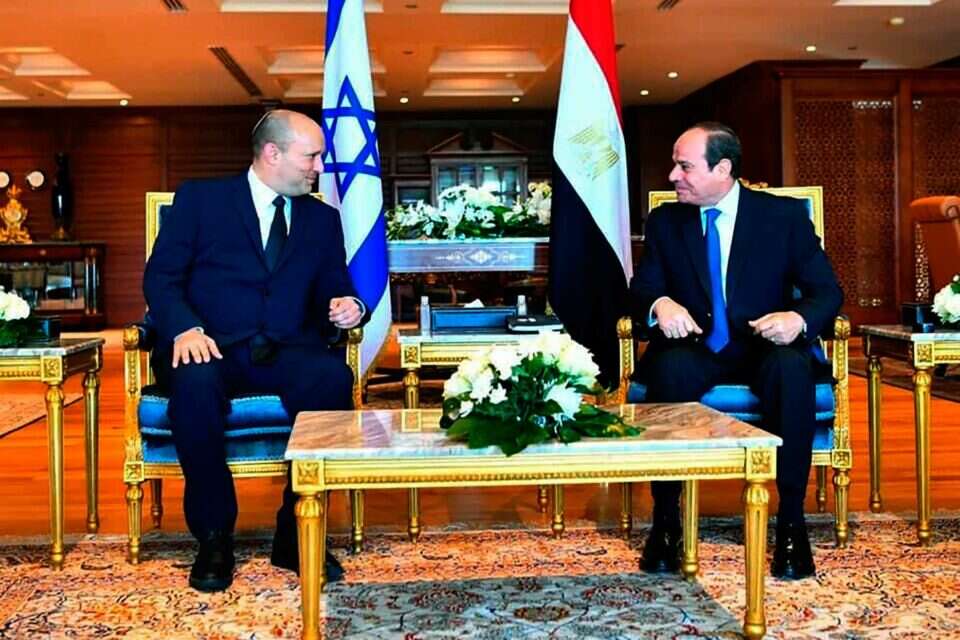The Israeli-Egyptian military liaison committee, established with the peace agreement, recently convened as part of the biennial meetings.
The committee convenes in rotation every six months, once in Israel and the other time in Egypt.
It is a forum where current military and security issues are raised, and at the traditional dinner, which is held in the ambassadors' homes, opinions are also exchanged on political issues.
The meetings were always held in a good atmosphere, with conspicuous cooperation and according to the rules of secrecy of the Chatham House.
This time we were informed that during the meeting in Cairo, the political echelon of Israel agreed to the Egyptian request to increase the Egyptian military force in Sinai, in order to fight terrorism in the peninsula.
After many years of fighting terrorism, Egypt is far from overpowering it in its territory.
More than a year ago, Egyptian President al-Sisi declared publicly that there are now some 20,000 Egyptian troops in Sinai.
The addition the Egyptians are now seeking will probably increase their numbers near our border.
The entry of Egyptian soldiers near our border - then and now - is in conflict with the military annex to the peace agreement, which limits the number of soldiers and types of Egyptian weapons between the Suez Canal and the border with Israel.
This arrangement comes to advance future surprises.
It is important to note that then, as now, the addition of soldiers was done at the request of Egypt and with the full consent of Israel.
Improved relations between the two countries have made this possible.
There are those of us who fear this, and it is only natural - after all, a few years ago a president of the Muslim Brotherhood came to power in Egypt, who seriously considered canceling the peace agreement.
Had he succeeded in this, we would have remained with the Egyptian soldiers on our border.
To everyone's delight, it did not happen.
Others here think the opposite.
The security and military ties we have not seen before have been created due to the identity of interests between the two countries, and historical changes taking place in the Middle East.
Above all, there is an Egyptian willingness not to hide, as in the past, ties with Israel.
It is a change that must be welcomed and also used to direct the relationship to the right frameworks.
For many years there was a gap between the good security relations with Egypt and the anemic relations in the bilateral field.
Trade, tourism, culture, business and more - were almost non-existent.
In the realm of overt bilateral relations, President al-Sisi has obstacles that will be difficult to overcome.
It takes time and patience to change that.
The trade unions, public hostility, unscrupulous media - all of these prevent him from developing open bilateral relations with Israel openly.
But now is a good time to take advantage of it.
One must, therefore, look for an area in which al-Sisi's hands are freer.
Until now, post-Sadat Egypt has not allowed Israeli diplomatic representatives to develop direct contact with the Egyptian leadership.
In contrast, the doors in Israel are wide open to Egyptian diplomats.
Cairo prefers to channel the connection of Israeli diplomats to one address, because that way there is more control.
Now that there is a rare hour of desire in relations between the two countries, and Israel has agreed for the second time to increase Egyptian military power in Sinai at al-Sisi's request, and takes a risk, albeit calculated - Israel should feel comfortable asking the Egyptian president to remove our ambassador's ties in Cairo.
It must ask him to allow her and the diplomatic staff to make direct contact with senior Egyptian officials - ministers, party leaders, university heads and more.
Such a directive is within the authority of al-Sisi and is more administrative than political.
At this stage, it is possible to instruct the Egyptian ministers that there is no limit to meeting the Israeli ambassador, Amira Oron, for work purposes.
Just as al-Sisi imprinted on his people the narrative of success in the future on the weight of the success of the canal on Yom Kippur, we will create our own narrative of success in a more normal relationship.
Let's do this as long as the iron is hot.

